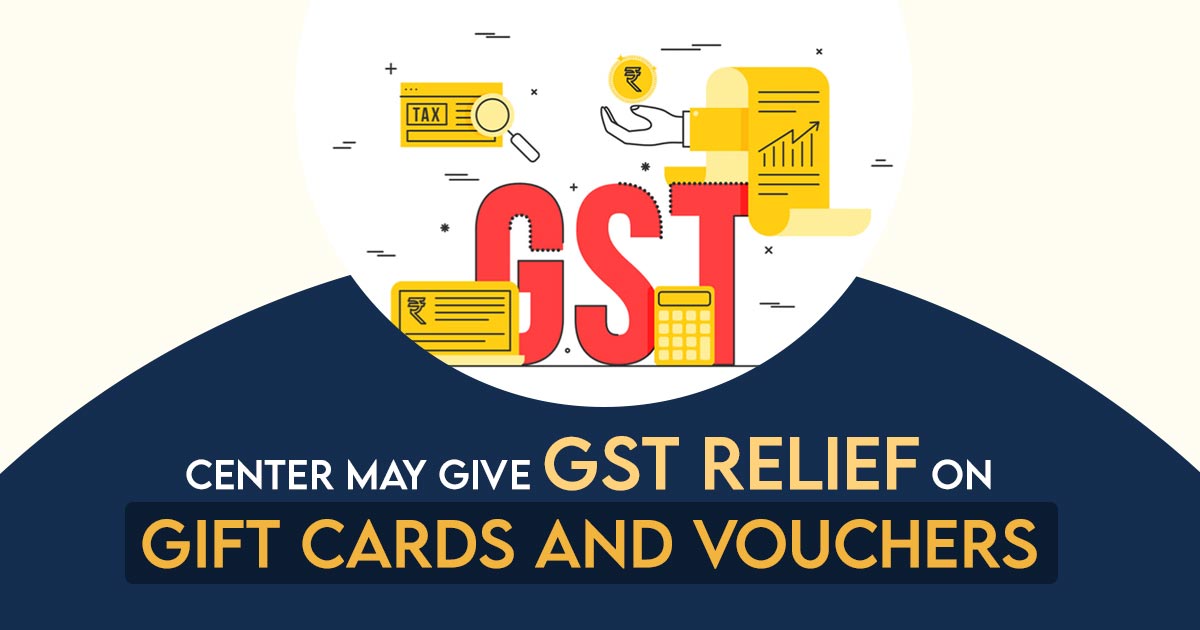
The government is now considering exempting vouchers or gift cards from the collection of goods and services tax (GST), with the aim of addressing the issue of double taxation in some situations.
Many retailers provide customers with vouchers or gift cards that may be exchanged for their products. As per the sources acquainted with the situation have stated that a clarification on this topic might be expected soon.
Currently, some vouchers are subject to GST at the time of purchase. When they are used to make a purchase of products or services that are already taxed, they result in double taxation. The proposed clarification aims to eliminate any ambiguity regarding the taxability of vouchers and gift cards, suggesting that they should not be taxed at the point of sale. It is also expected to provide guidance on the taxation of vouchers that are traded or sold to distributors or dealers by companies.
A government official stated, that the issue is being examined. The final decision on the clarification will be made by the GST Council, and the issue is currently being reviewed by its law committee.
The major issue is regarding the taxation of multi-purpose or non-identifiable vouchers, which can be redeemed for any goods or services. The industry contends that these vouchers should only be taxed at the time of redemption, based on the applicable GST rate of the purchased goods or services, rather than at the time of issuance, as this would result in dual taxation.
In contrast, single-purpose or identifiable vouchers can solely be exchanged for the specific goods or services they are intended for. As the items to be acquired are predetermined, they are subjected to taxation at the moment of being issued.
Moreover, the industry’s prevalent practice of levying tax on the complete face value of traded vouchers, rather than solely on the commission, is currently being scrutinized and evaluated.
The confusion surrounding the taxability of vouchers arose after a ruling by the Karnataka AAR in 2021, in the case of Premier Sales Promotion Pvt Ltd., which deemed vouchers as goods and taxable. Although this ruling was upheld by the Appellate Authority for Advance Rulings, it was subsequently set aside by the high court.
However, the decision of the appellate authority led authorities in some jurisdictions to impose GST and issue demands for the period prior to the ruling by the AAR.
The industry has expressed the need for clear guidance, as the imposition of tax at various stages of the distribution process for gift cards or vouchers, including distribution or trade margins and the value of unredeemed vouchers (breakage value), could potentially render this tool unviable due to its narrow profit margins.
Important: Promotional Schemes Gift or Else! GST Analysis & Judgments
To prevent unnecessary instances of dual taxation arising from voucher payments, a tax professional, emphasized the necessity for the GST Council to provide a comprehensive clarification. He suggested that this clarification should address the qualification criteria for vouchers as actionable claims, thereby ensuring clarity and avoiding any confusion.
According to experts, vouchers are simply a mode of payment and should be considered actionable claims. They argue that trading in vouchers and the profits earned from them should not be subject to GST liability.
A tax expert stated that the GST Council needs to clarify that vouchers are actionable claims and trading in vouchers and the margins earned therein do not evoke any GST liability. He further explained that breakage income, which does not involve a supply, should not be liable for GST under the current legal structure.









